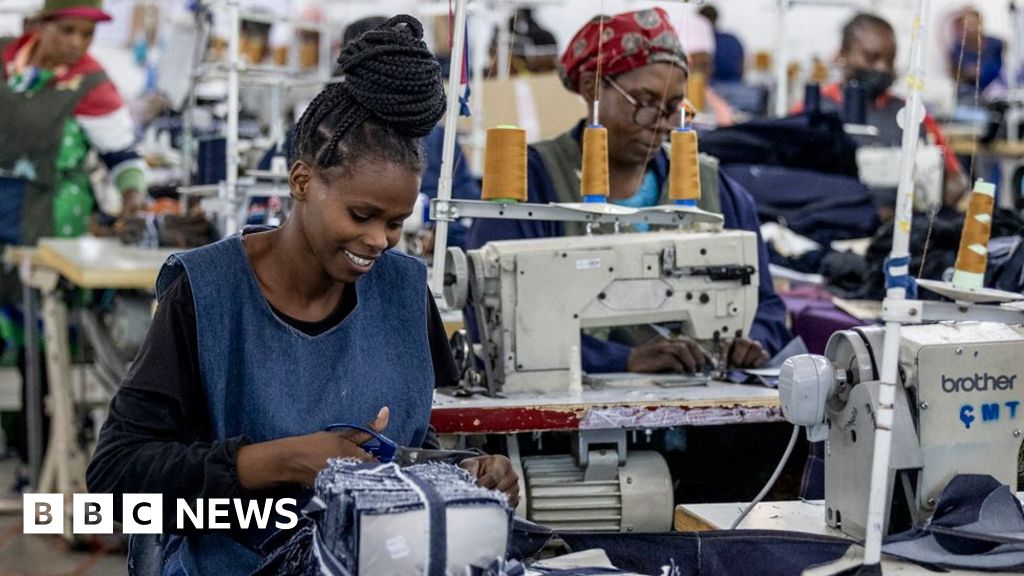Trump's Tariffs: A Devastating Blow to African Trade?
The imposition of tariffs by the Trump administration, while aimed at specific global economic powerhouses, inadvertently cast a long shadow over African economies, disrupting established trade relationships and hindering growth. While the immediate impact might not have been as pronounced as in other regions, the long-term consequences continue to ripple through African markets, raising serious concerns about sustainable development. This article delves into the multifaceted effects of these tariffs on African trade, examining both the immediate repercussions and the enduring challenges.
The Direct Impact: Disrupted Supply Chains and Reduced Exports
Trump's tariffs, primarily targeting steel and aluminum, significantly impacted African nations relying on these exports. Countries like South Africa, a major steel producer, experienced a decline in demand from the US market, leading to:
- Reduced export revenue: Lower demand directly translated into decreased income for African businesses and governments, impacting crucial development projects.
- Increased unemployment: The decline in exports led to job losses in the mining and manufacturing sectors, exacerbating existing socio-economic challenges.
- Disrupted supply chains: African businesses integrated into global supply chains faced delays and increased costs due to tariff-related disruptions. This particularly affected smaller businesses lacking the resources to navigate complex trade regulations.
Case Study: South Africa's Steel Industry
South Africa's steel industry, a major contributor to its economy, felt the brunt of these tariffs. The reduced US demand forced the industry to seek alternative markets, a process that proved both time-consuming and costly. This highlights the vulnerability of African economies heavily reliant on a single, potentially volatile, export market. Diversification of export markets is crucial to mitigate future risks.
The Indirect Impact: Wider Economic Consequences
Beyond the direct impact on specific sectors, the Trump tariffs had wider consequences for African economies:
- Reduced foreign investment: The uncertainty created by the tariffs discouraged foreign investment in African countries, hindering crucial development projects and infrastructure improvements.
- Increased prices for imported goods: The tariffs indirectly affected the price of imported goods, increasing costs for African consumers and businesses.
- Weakened regional trade: The tariffs contributed to a climate of trade uncertainty, impacting regional trade agreements and hindering economic integration within Africa.
The Challenge of Diversification
The Trump tariffs highlighted the critical need for African nations to diversify their economies and export markets. A reliance on a few major trading partners leaves them vulnerable to external shocks. Investing in:
- Value-added manufacturing: Moving beyond raw material exports to higher-value processed goods can reduce vulnerability to price fluctuations.
- Intra-African trade: Strengthening trade relationships within Africa can create more resilient and diverse markets.
- Technological advancement: Investing in technology can improve efficiency and competitiveness in global markets.
Looking Ahead: Lessons Learned and Future Strategies
The experience with Trump's tariffs provides valuable lessons for African nations. Building resilient economies requires:
- Strengthening trade agreements: Negotiating beneficial trade agreements with diverse partners can provide greater market access and stability.
- Improving infrastructure: Investing in infrastructure, including transportation and communication networks, is crucial for facilitating trade and economic growth.
- Promoting economic diversification: A diversified economy is less susceptible to shocks stemming from external factors.
The impact of Trump's tariffs serves as a stark reminder of the interconnectedness of the global economy and the vulnerability of developing nations to protectionist policies. While the immediate effects might have been contained, the long-term consequences underscore the need for proactive strategies to build more resilient and diversified African economies. This requires concerted effort from African governments, the private sector, and the international community to foster sustainable and inclusive growth.
